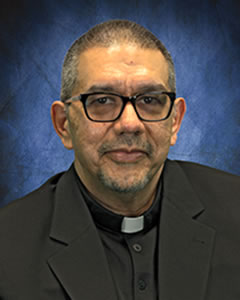
From the Director
Growing up in a Midwestern middle-class family, I was unaware of the economic realities outside of my world. Obviously, my parents worked hard to put a meal on the table and earn a living. My father taught me the value of saving up for a rainy day, and as I got older, explained to me about retirement funds such as the 401k. Often, I would watch new stories of extreme poverty in other parts of the world and was baffled why people, who were so poor, would have large families. After all, feeding all those mouths was costly and if you had little, how could you take the risk of having so many children? This thought was not uncommon among my peer group.
When I went to South America for mission, it was a common sight to see a pregnant young mother holding a child’s hand while pushing a baby carriage with a toddler. My mother, who visited me a few times in Chile, would often comment that she never saw more children in her life. One could bring up the doubts of my childhood of why so many children are in a place of poverty?
In the Bible, there are over 2,000 references to the poor and poverty. The Biblical understanding of “family” goes beyond blood to the wider community. And, the community’s obligations to the poor is one of the most central themes in the Bible.
After living for nearly 20 years in Chile, I developed a different view on this subject. In the United States, we have an infrastructure of Social Security, 401ks, and other retirement resources to aid us as we get older. We expect our children to leave our houses and have independent lives (by our standards). However, many other countries do not have this infrastructure. If there is no Social Security or 401ks, what are the retirement plans? In many traditional cultures, homes are multigenerational where the older generations depend on their children’s success to aid them in the future. The grandparents can be assured of a retirement home to live in. Furthermore, the grandparents are the caretakers of the grandchildren which enables the parents to pursue a full-time career. There is a value of having the grandparents’ wisdom guiding the new generation. To critique the poor for having too many children is akin to critiquing someone in the U.S. for putting too much money in a retirement plan. I came to understand that, in this context, children are not viewed as a liability.
In the Bible, there are over 2,000 references to the poor and poverty. The Biblical understanding of “family” goes beyond blood to the wider community. And, the community’s obligations to the poor is one of the most central themes in the Bible. From my experience above, the Biblical view would be that it shouldn’t be only the immediate family’s concern for the older generation, it should be a concern for all especially for the most vulnerable such as migrants, orphans and widows. Deuteronomy 14:28-29; Matthew 25:35 It is interesting to note that the first sins committed and punished in the early Christian community were sins of greed, those taking more than they need from those who needed it more. Ananias and Sapphira, a married couple who wished to join the Apostolic Church, were punished by Peter for hiding a portion of the money they had made from the sale of their house, rather than completely sharing their wealth with the community. Acts 5: 1-11 Simon the Sorcerer sought to buy the gift of the Holy Spirit from the Apostles so he could manipulate it for personal monetary gain. Acts 8: 9-24 These examples highlight how greed impedes the Biblical mission of aiding the poor and eliminating economic poverty. Timothy 6: 10 Today, we are all challenged to live out this Biblical mission and welcome the poor as our family, thus, confronting the reality of economic poverty.